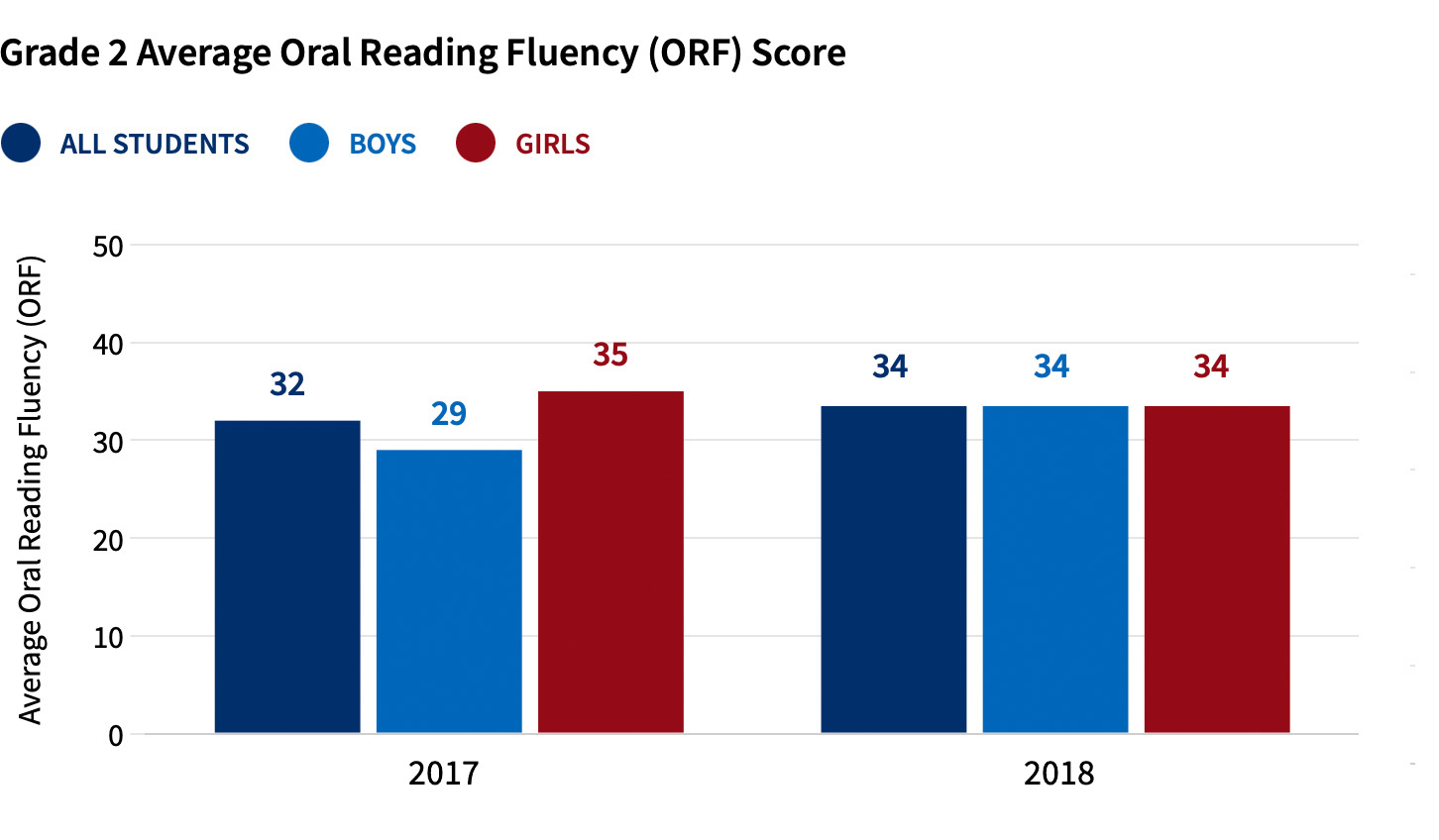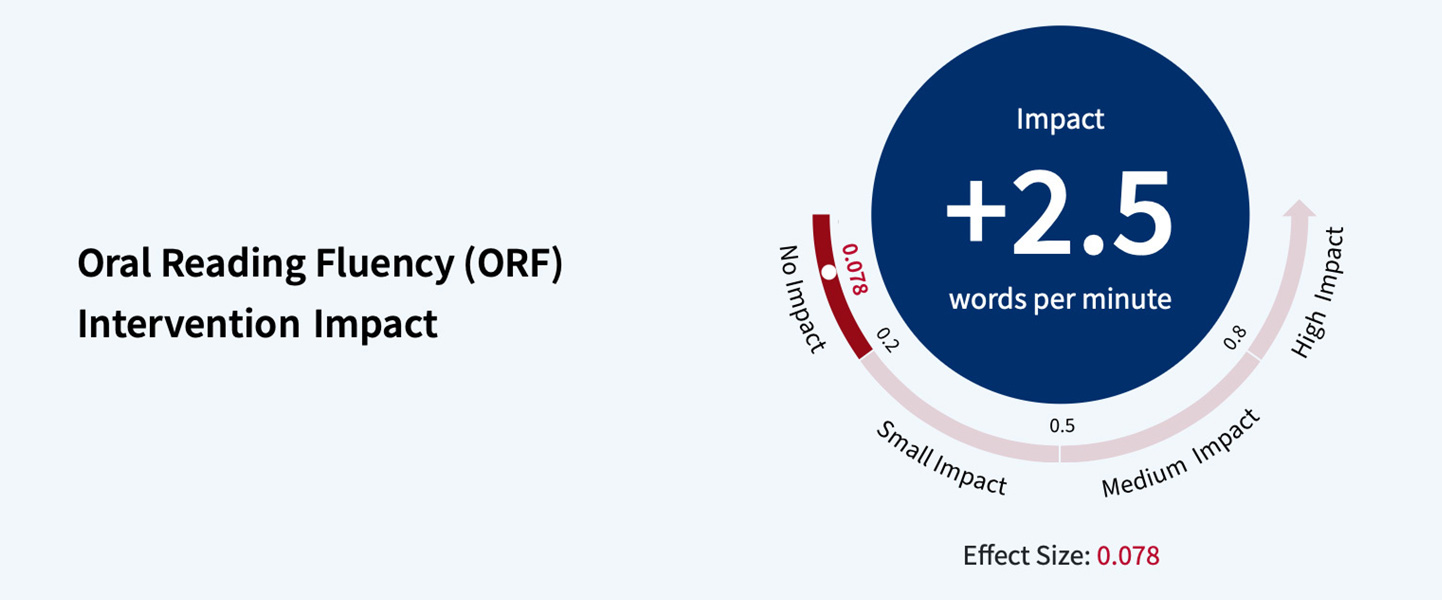Despite the long-term and more recent challenges faced in Afghanistan, USAID’s efforts contributed to increases in literacy among adults ages 15 to 24.
The foundation for improved literacy among young adults is laid in the early years of school. The USAID-funded early grade literacy project, Afghan Children Read (ACR), operated from 2016-2021 and was designed to expand and enhance equitable education service delivery. The former Government of the Islamic Republic of Afghanistan was a crucial partner in the initiative. The project initially operated in 16 districts in the provinces of Kabul, Herat, Nangarhar, and Laghman. The project (2021) increased its scope to all 58 districts in the same provinces in the final year.
The Afghan Children Read project made several important contributions to improving early literacy instruction.
Key Takeaways
USAID ACR Program Key Accomplishments:
 1st
1stsupported the first draft of the Ministry of Education Early Grade Reading Policy
 3,682
3,682primary teachers trained
 1,178
1,178education administrators trained
 595,000
595,000teaching and learning materials printed and distributed

implemented procedures and systems for supervision, coaching, and monitoring teachers and students.
Gender Gap Narrowed
Performance on all Early Grade Reading Assessment (EGRA) subtasks showed some improvement from baseline (2017) to midline (2018) for grade 2 students who speak Dari in the Herat Province. While reading fluency rates increased slightly from 2017 to 2018, the gender gap narrowed with boys and girls reading at the same average rate of 34 correct words per minute in 2018.

After only one year of ACR literacy program implementation, the literacy achievement of grade 2 students began showing gradual improvements. Following the first year of the program, children in the Herat province were reading 2.5 more correct words per minute. The project was not able to collect endline data on impact due to the restrictions related to the pandemic and a final assessment of literacy levels intended to take place in August 2021 had to be canceled.

All of the EGRA subtasks saw a slight improvement from the program. The syllable sounds subtask saw the largest impact, with a statistically significant increase of 3.7 correct sounds per minute.
Implications for Discussion
Literacy rates have increased
In the past 20 years, literacy rates have increased for both genders. The USAID ACR project has assisted the Ministry of Education to build a strong core of reading teachers and increased access to Mother Tongue materials. Of added benefit, students report that they are happy and feel safe in school and parents and siblings assist younger students in learning to read.
Equity challenges remain
The divide between students in a rural setting and those in urban areas is challenging. Given that 74% of the population is based in rural locations, bringing equitable schooling opportunities for all Afghan students remains a challenge. See the Afghan Children Read: Early Grade Reading Assessment in Dari Language Conducted in the Province of Herat Revised Midline Report (PDF, 1.2MB) for results on urban/rural divide.


